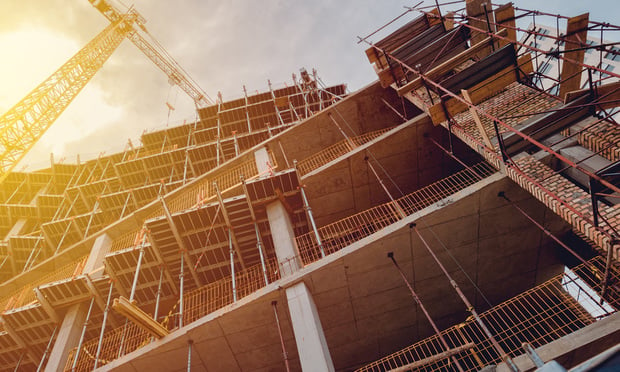LOS ANGELES-L.A.’s Central City Association came up with a double meaning in the title for its conference seeking a 20-20 view of what the city will be like in the year 2020. The association’s “Downtown 2020: Continuing the Renaissance” symposium presented a view of Downtown L.A. 10 years hence that would include more housing, more jobs, an improved transportation network and other infrastructure improvements if the speakers and panelists get their wishes.
“If I could change one thing, it would be the ability to create jobs in this town,” said Kevin Ratner, president of Forest City West, one of a host of policy makers and top business and community leaders at the event, who moderated a panel titled “Foundations for the Future: Intersection of Transportation and Land Use.”
Panelist Christine Essel, CEO of the Community Redevelopment Agency of L.A., discussed the need for more housing. “We would like to see another 5,000 units come online in this decade,” she said. “It is important for families to live downtown and not feel like they need to move out.” In order to accomplish that, she pointed to things like infrastructure and transportation needing some upgrades, in addition to bringing in an elementary school.
Art Leahy, CEO of Metro, pointed out that over the 40 years that he has been coming to Downtown L.A. as a worker, the changes have been dramatic. “A stunning set of changes have happened, and I think that will continue,” he said. He pointed to subway expansions “revolutionizing L.A.”
Both Michael LoGrande, director of planning for the City of L.A., as well as Bill Witte, president of Related California, pointed out that connecting the different neighborhoods that have grown organically into one neighborhood is an important step. “I think there is potential for L.A. to break down the barriers that separate it, and blend it with the rest of the city,” said Witte.
“The single most important thing would be improved transit,” Witte added. “Downtown is the closest thing to a transit hub in the region. Continuing that effort will bring in more people and the services will follow.”
As a follow-up, moderator Ratner asked panelists how neighborhood connections develop and how people can be encouraged to use the transit that is already in place. “We have more going on at the MTA right now than we have had in the past 20 or 30 years in transit,” Leahy said.
However, a weakness in the transit system, according to Leahy, are the visuals such as dead landscaping, potholes and debris that transit riders see on their way into L.A. “If you come into L.A. on a bus or train on a freeway, you would not be impressed,” he said. “You need to look at this place through the eyes of a visitor and enhance the beauty of the wonderful things that are happening here in L.A.”
Ratner pointed out that the growth downtown is sometimes very difficult for developers to actually accomplish and asked some of the planners on the panel how they are addressing that. LoGrande agreed that it is ironic that growth downtown is encouraged, “but we make it very difficult to accomplish.” He pointed out that the suburban model of the zoning code makes it difficult to develop. “Even though we say a particular development may meet our growth plan, for example, you have to go through this crazy entitlement and labor-intensive process.” The city is considering a reforming of the zoning code, but he pointed out that there is a lot of resistance to change.
Downtown remains the city’s economic engine, said Carol Schatz, president and CEO of CCA. “The current renaissance has transformed Downtown Los Angeles from a nine-to-five business center to a residential, cultural and entertainment destination, bringing 27,000 new residents, 93,500 new jobs, $180 million in tax revenues to the city and county and $10.9 billion in business revenues,” she said. She added that “It is critical to Los Angeles' economic future that this renaissance continue.”
Panelists and attendees at the event, which was held at the Downtown L.A. Marriott, were some of the city’s top real estate brokers, developers and officials from community organizations, government agencies and neighborhood councils. In addition to the panelists above, they included: Jan Perry, L.A. City Council president pro tempore, District 9; Eli Broad, founder of the Broad Foundations; Tom Gilmore, partner of Gilmore Associates; Tim Leiweke, president and CEO of AEG; Andrew Meieran, owner of the Edison; Derrick Moore, vice president of CB Richard Ellis; Nelson Rising, president, CEO and director of MPG Office Trust; Melani Smith, principal of Melendrez; Patrick Spillane, senior vice president of IDS Real Estate Group; Shiraz Tangri, a partner at Alston + Bird; and Jim Thomas, chairman, president and CEO of Thomas Properties Group Inc.
Continue Reading for Free
Register and gain access to:
- Breaking commercial real estate news and analysis, on-site and via our newsletters and custom alerts
- Educational webcasts, white papers, and ebooks from industry thought leaders
- Critical coverage of the property casualty insurance and financial advisory markets on our other ALM sites, PropertyCasualty360 and ThinkAdvisor
Already have an account? Sign In Now
© 2024 ALM Global, LLC, All Rights Reserved. Request academic re-use from www.copyright.com. All other uses, submit a request to [email protected]. For more information visit Asset & Logo Licensing.








